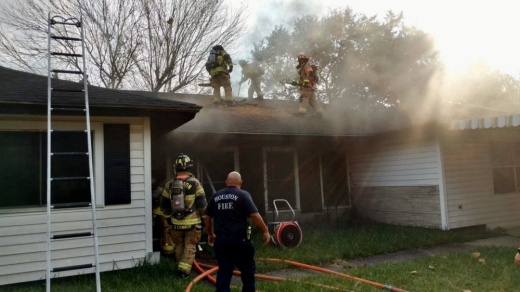“Its important for people in the city of Houston to know that as it relates to the Houston Firefighters under this administration, there will be a minimum of 18% over three years,” Mayor Sylvester Turner said.
The 18% raises split over the next three years are funded by the American Rescue Plan Act, a federal bill that allocated funds to local governments to alleviate budget concerns exacerbated by the COVID-19 pandemic.
Turner first announced his intentions to use some of the city’s over $600 million in ARPA funds for firefighter raises May 19.
The raises are expected to cost the city $115 million dollars over the next three years and bring HFD starting salaries up to $21.35 per hour. The adjustment puts the department on par with other major cities in Texas including Dallas, Fort Worth and San Antonio, according to a city presentation.
The raises come amid two ongoing legal battles between the city of Houston and the Houston Professional Firefighters Association, the union representing HFD.
In 2017, the city and the union failed to reach a collective bargaining agreement, which is the legal process for determining a labor contract for the firefighters. As a result, firefighters have gone without raises for over five years. The collective bargaining process would also set other provisions in the contract, such as health and retirement benefits.
A lawsuit filed in response to the failed negotiations was settled on May 6. It upheld a provision within state collective bargaining law that says a court can determine pay rates if both parties reach an impasse. The city argued that the provision was unconstitutional and represented an overreach of the court system’s powers. On June 21, the city of Houston appealed the ruling and the case will next be considered by the Texas Supreme Court.
A second lawsuit relates to the fire union’s attempt to secure raises comparable to police pay rates through a citywide vote known as Proposition B. Although a district court ruled their attempt unconstitutional, the union appealed the case and is awaiting another ruling. If the union is successful, a new legal decision could require a new pay rate for the firefighters.
HPFFA President Marty Lancton said the raises should be considered a bonus because they were never agreed upon in negotiations between the two parties and included in a new contract.
“These are not permanent raises. They are temporary bonuses funded with temporary dollars provided through the American Rescue Plan Act,” Lancton said. “While grateful for the money from the federal government, Houston firefighters and their families want, need and deserve the security that comes with a binding labor contract.”
The mayor announcing a series of raises over the next three years does not replace the need for both parties to negotiate a contract, said Richard Carlson, a professor at South Texas College of Law, who specializes in collective bargaining law.
“The mayor can’t simply say, 'We're going to solve a problem because we're going to use these funds, and that's the end of it,'” he said.
Searching for another avenue to secure a contract, The HPFFA is in the process of collecting signatures for a petition that would allow Houston voters to determine if the city charter should be updated to require unions and the mayor to enter binding arbitration in the event of an impasse. The charter only requires the city enter mediation in the event of impasse meaning both parties and a mediator can eventually walk away from the negotiating table without reaching an agreement. Binding arbitration, however, involves an arbiter whose job is to create a legally binding agreement between the two parties on their behalf.
“Now the question becomes ... what is the purpose for asking people to sign petitions for binding arbitration, which can hurt the city,” Turner said after the council vote.





